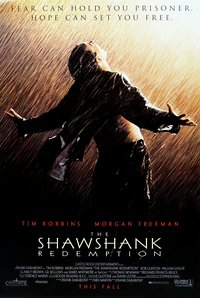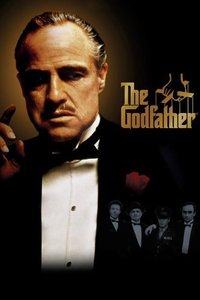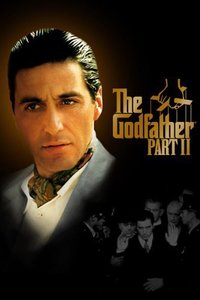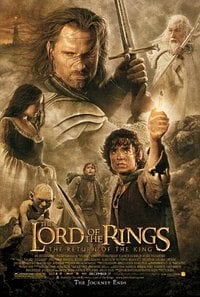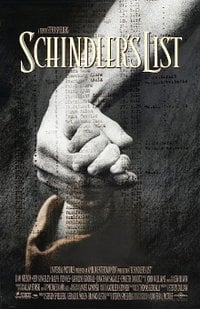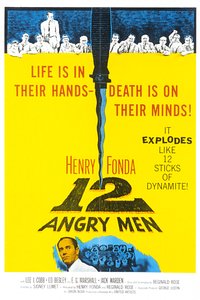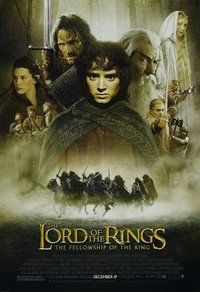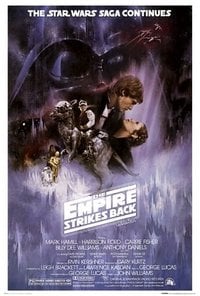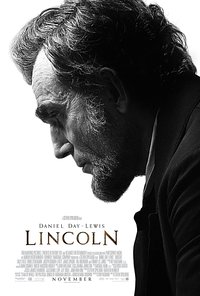
Lincoln Quotes
As the Civil War continues to rage, America's president struggles with continuing carnage on the battlefield as he fights with many inside his own cabinet on the decision to emancipate the slaves.
Abraham Lincoln: A compass, I learned when I was surveying, it'll... it'll point you True North from where you're standing, but it's got no advice about the swamps and deserts and chasms that you'll encounter along the way. If in pursuit of your destination, you plunge ahead, heedless of obstacles, and achieve nothing more than to sink in a swamp... What's the use of knowing True North?
Abraham Lincoln: It was right after the revolution, right after peace had been concluded. And Ethan Allen went to London to help our new country conduct its business with the king. The English sneered at how rough we are and rude and simple-minded and on like that, everywhere he went. 'Til one day he was invited to the townhouse of a great English lord. Dinner was served, beverages imbibed, time passed as happens and Mr. Allen found he needed the privy. He was grateful to be directed to this. Relieved, you might say. Mr. Allen discovered on entering the water closet that the only decoration therein was a portrait of George Washington. Ethan Allen done what he came to do and returned to the drawing room. His host and the others were disappointed when he didn't mention Washington's portrait. And finally his lordship couldn't resist and asked Mr. Allen had he noticed it. The picture of Washington. He had. Well what did he think of its placement? Did it seem appropriately located to Mr. Allen? And Mr. Allen said it did. The host was astounded. ''
[British accent]
Abraham Lincoln: "Appropriate? George Washington's likeness in a water closet?"
[normal voice]
Abraham Lincoln: "Yes," said Mr. Allen, "where it will do good service. The world knows nothing will make an Englishman shit quicker than the sight of George Washington."
[the whole room laughs]
Abraham Lincoln: I love that story.
[British accent]
Abraham Lincoln: "Appropriate? George Washington's likeness in a water closet?"
[normal voice]
Abraham Lincoln: "Yes," said Mr. Allen, "where it will do good service. The world knows nothing will make an Englishman shit quicker than the sight of George Washington."
[the whole room laughs]
Abraham Lincoln: I love that story.
Abraham Lincoln: [pounds his hand on a table as his cabinet squabbles] I can't listen to this anymore. I can't accomplish a goddamn thing of any worth until we cure ourselves of slavery and end this pestilential war! I wonder if any of you or anyone else knows it. I know! I need this! This amendment is that cure! We've stepped out upon the world stage now. Now! With the fate of human dignity in our hands. Blood's been spilled to afford us this moment now! Now! Now! And you grouse so and heckle and dodge about like pettifogging Tammany Hall hucksters!
Thaddeus Stevens: How can I hold that all men are created equal when here before me stands, stinking, the moral carcass of the gentleman from Ohio? Proof that some men ARE inferior, endowed by their maker with dim wits, impermeable to reason, with cold, pallid slime in their veins instead of hot, red blood! YOU are more reptile than man, George, so low and flat that the foot of man is incapable of crushing you!
George Pendleton: How dare you!
Thaddeus Stevens: Yet even YOU, Pendleton - who should have been gibbetted for treason long before today - even worthless, unworthy you ought to be treated equally before the law! And so again, sir, and again and again and again, I say, I do not hold with equality in all things, only with equality before the law!
George Pendleton: How dare you!
Thaddeus Stevens: Yet even YOU, Pendleton - who should have been gibbetted for treason long before today - even worthless, unworthy you ought to be treated equally before the law! And so again, sir, and again and again and again, I say, I do not hold with equality in all things, only with equality before the law!
Abraham Lincoln: Back when I rode the legal circuit in Illinois, I defended a woman from Metmora named Melissa Goings, 77 years-old. They said she murdered her husband, he was 83. He was choking her and she grabbed a-hold of a stick of firewood and fractured his skull and he died. In his will he wrote: 'I suspect she has killed me. If I get over it, I will have revenge.' No one was keen to see her convicted, he was that kind of husband. I asked the prosecuting attorney if I might have a short conference with my client. And she and I went into a room in the courthouse, but I alone emerged. The window in the room was found to be wide open. It was believed the old lady may have climbed out of it. I told the bailiff right before. I left her in the room she asked me where she could get a good drink of water, and I told her Tennessee. Mrs. Goings was seen no more in Metamora. Enough justice had been done; they even forgave the bondsman her bail.
John Usher: I'm afraid I don't see...
Abraham Lincoln: I decided that the Constitution gives me war powers, but no one knows just exactly what those powers are. Some say they don't exist. I don't know. I decided I needed them to exist to uphold my oath to protect the Constitution, which I decided meant that I could take the rebel's slaves from them as property confiscated in war. That might recommend to suspicion that I agree with the rebs that their slaves are property in the first place. Of course I don't, never have, I'm glad to see any man free, and if calling a man property, or war contraband, does the trick... Why I caught at the opportunity. Now here's where it gets truly slippery. I use the law allowing for the seizure of property in a war knowing it applies only to the property of governments and citizens of belligerent nations. But the South ain't a nation, that's why I can't negotiate with'em. If in fact the Negroes are property according to law, have I the right to take the rebels' property from 'em, if I insist they're rebels only, and not citizens of a belligerent country? And slipperier still: I maintain it ain't our actual Southern states in rebellion but only the rebels living in those states, the laws of which states remain in force. The laws of which states remain in force. That means, that since it's states' laws that determine whether Negroes can be sold as slaves, as property - the Federal government doesn't have a say in that, least not yet then Negroes in those states are slaves, hence property, hence my war powers allow me to confiscate'em as such. So I confiscated 'em. But if I'm a respecter of states' laws, how then can I legally free'em with my Proclamation, as I done, unless I'm cancelling states' laws? I felt the war demanded it; my oath demanded it; I felt right with myself; and I hoped it was legal to do it, I'm hoping still. Two years ago I proclaimed these people emancipated - "then, hence forward and forever free."But let's say the courts decide I had no authority to do it. They might well decide that. Say there's no amendment abolishing slavery. Say it's after the war, and I can no longer use my war powers to just ignore the courts' decisions, like I sometimes felt I had to do. Might those people I freed be ordered back into slavery? That's why I'd like to get the Thirteenth Amendment through the House, and on its way to ratification by the states, wrap the whole slavery thing up, forever and aye. As soon as I'm able. Now. End of this month. And I'd like you to stand behind me. Like my cabinet's most always done.
John Usher: I'm afraid I don't see...
Abraham Lincoln: I decided that the Constitution gives me war powers, but no one knows just exactly what those powers are. Some say they don't exist. I don't know. I decided I needed them to exist to uphold my oath to protect the Constitution, which I decided meant that I could take the rebel's slaves from them as property confiscated in war. That might recommend to suspicion that I agree with the rebs that their slaves are property in the first place. Of course I don't, never have, I'm glad to see any man free, and if calling a man property, or war contraband, does the trick... Why I caught at the opportunity. Now here's where it gets truly slippery. I use the law allowing for the seizure of property in a war knowing it applies only to the property of governments and citizens of belligerent nations. But the South ain't a nation, that's why I can't negotiate with'em. If in fact the Negroes are property according to law, have I the right to take the rebels' property from 'em, if I insist they're rebels only, and not citizens of a belligerent country? And slipperier still: I maintain it ain't our actual Southern states in rebellion but only the rebels living in those states, the laws of which states remain in force. The laws of which states remain in force. That means, that since it's states' laws that determine whether Negroes can be sold as slaves, as property - the Federal government doesn't have a say in that, least not yet then Negroes in those states are slaves, hence property, hence my war powers allow me to confiscate'em as such. So I confiscated 'em. But if I'm a respecter of states' laws, how then can I legally free'em with my Proclamation, as I done, unless I'm cancelling states' laws? I felt the war demanded it; my oath demanded it; I felt right with myself; and I hoped it was legal to do it, I'm hoping still. Two years ago I proclaimed these people emancipated - "then, hence forward and forever free."But let's say the courts decide I had no authority to do it. They might well decide that. Say there's no amendment abolishing slavery. Say it's after the war, and I can no longer use my war powers to just ignore the courts' decisions, like I sometimes felt I had to do. Might those people I freed be ordered back into slavery? That's why I'd like to get the Thirteenth Amendment through the House, and on its way to ratification by the states, wrap the whole slavery thing up, forever and aye. As soon as I'm able. Now. End of this month. And I'd like you to stand behind me. Like my cabinet's most always done.
Abraham Lincoln: Euclid's first common notion is this: Things which are equal to the same things are equal to each other. That's a rule of mathematical reasoning and its true because it works - has done and always will do. In his book Euclid says this is self evident. You see there it is even in that 2000 year old book of mechanical law it is the self evident truth that things which are equal to the same things are equal to each other.
Abraham Lincoln: Abolishing slavery by constitutional provisions settles the fate for all coming time. Not only of the millions now in bondage, but of unborn millions to come. Two votes stand in its way. These votes must be procured.
William Seward: We need two yeses. Three abstentions. Four yeses and one more abstention and the amendment will pass.
Abraham Lincoln: You've got a night and a day and a night; several perfectly good hours! Now get the hell out of here and get them!
James Ashley: Yes. But how?
Abraham Lincoln: Buzzard's guts, man! I am the President of the United States of America! Clothed in immense power! You will procure me these votes.
William Seward: We need two yeses. Three abstentions. Four yeses and one more abstention and the amendment will pass.
Abraham Lincoln: You've got a night and a day and a night; several perfectly good hours! Now get the hell out of here and get them!
James Ashley: Yes. But how?
Abraham Lincoln: Buzzard's guts, man! I am the President of the United States of America! Clothed in immense power! You will procure me these votes.
Clerk - Edward McPherson: Roll call concludes. Voting is completed. Now...
Schuyler Colfax: Mr. clerk? Please call my name. I want to cast a vote.
George Pendleton: I object! The Speaker doesn't vote.
Clerk - Edward McPherson: The Speaker may vote if he so chooses.
George Pendleton: It is highly unusual, sir.
Schuyler Colfax: This isn't usual, Mr. Pendleton. This is history.
Schuyler Colfax: Mr. clerk? Please call my name. I want to cast a vote.
George Pendleton: I object! The Speaker doesn't vote.
Clerk - Edward McPherson: The Speaker may vote if he so chooses.
George Pendleton: It is highly unusual, sir.
Schuyler Colfax: This isn't usual, Mr. Pendleton. This is history.
[last lines, from Second Inaugural speech]
Abraham Lincoln: Fondly do we hope, fervently do we pray, that this mighty scourge of war may speedily pass away. Yet, if God wills that it continue until all the wealth piled by the bondsman's two hundred and fifty years of unrequited toil shall be sunk, and until every drop of blood drawn with the lash shall be paid by another drawn with the sword, as was said three thousand years ago, so still it must be said "the judgments of the Lord are true and righteous altogether." With malice toward none, with charity for all, with firmness in the right as God gives us to see the right, let us strive on to finish the work we are in, to bind up the nation's wounds, to care for him who shall have borne the battle and for his widow and his orphan, to do all which may achieve and cherish a just and lasting peace among ourselves and with all nations.
Abraham Lincoln: Fondly do we hope, fervently do we pray, that this mighty scourge of war may speedily pass away. Yet, if God wills that it continue until all the wealth piled by the bondsman's two hundred and fifty years of unrequited toil shall be sunk, and until every drop of blood drawn with the lash shall be paid by another drawn with the sword, as was said three thousand years ago, so still it must be said "the judgments of the Lord are true and righteous altogether." With malice toward none, with charity for all, with firmness in the right as God gives us to see the right, let us strive on to finish the work we are in, to bind up the nation's wounds, to care for him who shall have borne the battle and for his widow and his orphan, to do all which may achieve and cherish a just and lasting peace among ourselves and with all nations.
William Seward: Gentleman, you have a visitor.
W.N. Bilbo: [checking his friend cards] Oh my God, goddamn...
W.N. Bilbo: [President Lincoln walks in] I'll be fucked.
Abraham Lincoln: I wouldn't bet against it, Mr...?
W.N. Bilbo: W.N.Bilbo.
Abraham Lincoln: Yeah, Mr. Bilbo. Gentlemen...
Robert Latham: Sir.
W.N. Bilbo: Why are you here? No offense, but Mr. Seward's banished the very mention of your name, he won't even let us use fifty-cent pieces 'cause they got your face on 'em.
Abraham Lincoln: The Secretary of State here tells me that, uh... you got eleven Democrats in the bag. That's encouraging.
Richard Schell: Oh, you've got no cause to be encouraged. Sir. Uh...
Robert Latham: Are we being... fired?
Abraham Lincoln: [quoting Shakespeare] 'We have heard the chimes of midnight, Master Shallow.' I'm here to alert you boys that the great day of reckoning is nigh upon us.
W.N. Bilbo: [checking his friend cards] Oh my God, goddamn...
W.N. Bilbo: [President Lincoln walks in] I'll be fucked.
Abraham Lincoln: I wouldn't bet against it, Mr...?
W.N. Bilbo: W.N.Bilbo.
Abraham Lincoln: Yeah, Mr. Bilbo. Gentlemen...
Robert Latham: Sir.
W.N. Bilbo: Why are you here? No offense, but Mr. Seward's banished the very mention of your name, he won't even let us use fifty-cent pieces 'cause they got your face on 'em.
Abraham Lincoln: The Secretary of State here tells me that, uh... you got eleven Democrats in the bag. That's encouraging.
Richard Schell: Oh, you've got no cause to be encouraged. Sir. Uh...
Robert Latham: Are we being... fired?
Abraham Lincoln: [quoting Shakespeare] 'We have heard the chimes of midnight, Master Shallow.' I'm here to alert you boys that the great day of reckoning is nigh upon us.
Abraham Lincoln: All we've done is show the world that democracy isn't chaos. That there is a great, invisible strength in a people's union. Say we've shown that a people can endure awful sacrifice and yet cohere. Mightn't that save at least the idea of democracy to aspire to? Eventually to become worthy of?
Abraham Lincoln: [greeting a pair of visitors from Jefferson City] I heard tell once of a Jefferson City lawyer who had a parrot that would wake him each morning crying out 'today's the day the world shall end as scripture has foretold'. And one day, the lawyer shot him for the sake of peace and quiet I presume, thus fulfilling, for the bird at least, his prophecy.
[the guests don't laugh]
[the guests don't laugh]
Corporal Ira Clark: Now that white people have accustomed themselves to seeing negro men with guns fighting on their behalf, and even getting the same pay, in a few years perhaps they can abide the idea of negro lieutenants and captains. In fifty years, maybe a negro colonel. In a hundred years, the vote.
Abraham Lincoln: What will you do after the war, Corporal Clark?
Corporal Ira Clark: Work sir. Perhaps you'll hire me.
Abraham Lincoln: Perhaps I will.
Corporal Ira Clark: But you should know, sir, that I get sick at the smell of bootblack, and I cannot cut hair.
Abraham Lincoln: [grins] I've yet to find a man could make a difference with mine.
Private Harold Green: You got springy hair for a white man.
Abraham Lincoln: I do. My last barber hanged himself. And the one before that. Left me his scissors in his will.
Abraham Lincoln: What will you do after the war, Corporal Clark?
Corporal Ira Clark: Work sir. Perhaps you'll hire me.
Abraham Lincoln: Perhaps I will.
Corporal Ira Clark: But you should know, sir, that I get sick at the smell of bootblack, and I cannot cut hair.
Abraham Lincoln: [grins] I've yet to find a man could make a difference with mine.
Private Harold Green: You got springy hair for a white man.
Abraham Lincoln: I do. My last barber hanged himself. And the one before that. Left me his scissors in his will.
Abraham Lincoln: With malice toward none, with charity for all, with firmness in the right as God gives us to see the right, let us strive on to finish the work we are in, to bind up the nation's wounds, to care for him who shall have borne the battle and for his widow and his orphan, to do all which may achieve and cherish a just and lasting peace among ourselves and with all nations.
Abraham Lincoln: When the people disagree, bringing them together requires going slow until they're ready to...
Thaddeus Stevens: Shit on the people and what they want and what they're ready for. I don't give a goddamn about the people and what they want. This is the face of someone who has fought long and hard for the *good* of the people without caring much for any of 'em. And now I look a lot worse without my wig.
Thaddeus Stevens: Shit on the people and what they want and what they're ready for. I don't give a goddamn about the people and what they want. This is the face of someone who has fought long and hard for the *good* of the people without caring much for any of 'em. And now I look a lot worse without my wig.
Abraham Lincoln: A compass I learnt when I was surveying, it'll... it'll point you true north from where your standing, but it's got no advice about the swamps, deserts and chasms that you'll encounter along the way. If in pursuit of your destination, you plunge ahead heedless of obstacles, and achieve nothing more than to sink in a swamp, what's the use of knowing true north?
Tad Lincoln: When you were a slave, Mr. Slade, did they beat you?
William Slade: I was born a free man. Nobody beat me except I beat them right back.
[Mrs. Keckley enters]
William Slade: Mrs. Keckley was a slave. Ask her if she was beaten.
Elizabeth Keckley: I was beaten with a fire shovel when I was younger than you.
William Slade: I was born a free man. Nobody beat me except I beat them right back.
[Mrs. Keckley enters]
William Slade: Mrs. Keckley was a slave. Ask her if she was beaten.
Elizabeth Keckley: I was beaten with a fire shovel when I was younger than you.
Abraham Lincoln: It's nighttime. Ship's move by some terrible power at terrific speed. And though it's imperceptible in the darkness, I have an intuition that we're headed towards a shore. No one else seems to be aboard the vessel. I'm keenly aware of my aloneness.
Abraham Lincoln: [quoting Hamlet] "I could be bounded in a nutshell and count myself a king of infinite space, were it not that I have bad dreams."
Abraham Lincoln: Hmm. I reckon it's the speed that's strange to me. I'm used to going at a deliberate pace. I should space you, Molly. I shouldn't tell you my dreams.
Mary Todd Lincoln: I don't want to be spared if you aren't And you spare me nothing.
Abraham Lincoln: [quoting Hamlet] "I could be bounded in a nutshell and count myself a king of infinite space, were it not that I have bad dreams."
Abraham Lincoln: Hmm. I reckon it's the speed that's strange to me. I'm used to going at a deliberate pace. I should space you, Molly. I shouldn't tell you my dreams.
Mary Todd Lincoln: I don't want to be spared if you aren't And you spare me nothing.
Abraham Lincoln: If we submit ourselves to law, even submit to losing freedoms, the freedom to oppress, for instance, we may discover other freedoms previously unknown to us. Had you kept faith with democratic process, as frustrating as that can be...
Judge John A. Campbell: Come sir, spare us these pieties. Did you defeat us with ballots?
Alexander Stephens: How have you held your Union together? Through democracy? How many hundreds of thousands have died during your administration? Your union, sir, is bonded in cannon fire and death.
Abraham Lincoln: It may be you're right. But say all we done is show the world that democracy isn't chaos, that there is a great invisible strength in a people's union? Say we've shown that a people can endure awful sacrifice and yet cohere? Mightn't that save at least the idea of democracy, to aspire to? Eventually to become worthy of? At all rates, whatever must be proven by blood and sacrifice must have been proved by now. Shall we stop this bleeding?
Judge John A. Campbell: Come sir, spare us these pieties. Did you defeat us with ballots?
Alexander Stephens: How have you held your Union together? Through democracy? How many hundreds of thousands have died during your administration? Your union, sir, is bonded in cannon fire and death.
Abraham Lincoln: It may be you're right. But say all we done is show the world that democracy isn't chaos, that there is a great invisible strength in a people's union? Say we've shown that a people can endure awful sacrifice and yet cohere? Mightn't that save at least the idea of democracy, to aspire to? Eventually to become worthy of? At all rates, whatever must be proven by blood and sacrifice must have been proved by now. Shall we stop this bleeding?
Mary Todd Lincoln: You think I'm ignorant of what you're up to because you haven't discussed this scheme with me as you ought to have done? When have I ever been so easily bamboozled? I believe you when you insist that amending the Constitution and abolishing slavery will end this war. And since you're sending my son into the war, woe to you if you fail to pass the amendment.
Robert Lincoln: I have to do this! And I will do it, and I don't need your permission to enlist!
Abraham Lincoln: That same speech has been made by how many sons to how many fathers since this war began? 'I don't need your damn permission, you miserable old goat! I'm gonna enlist anyhow!' What wouldn't those numberless fathers have given to be able to say to their sons, as I say now to mine, I am commander-in-chief, so in point of fact, without my permission, you ain't enlisting in nothing, nowhere young man!
Robert Lincoln: It's mama you're scared of, not me getting killed!
Abraham Lincoln: [Lincoln slaps him, then tries to hug him; Robert pushes him away]
Robert Lincoln: I have to do this. And I will, or I will feel ashamed of myself for the rest of my life. Whether or not you fought is what matters. And not just to other people, but to myself. I won't be you, Pa. I can't do that. But I don't want to be nothing.
Abraham Lincoln: That same speech has been made by how many sons to how many fathers since this war began? 'I don't need your damn permission, you miserable old goat! I'm gonna enlist anyhow!' What wouldn't those numberless fathers have given to be able to say to their sons, as I say now to mine, I am commander-in-chief, so in point of fact, without my permission, you ain't enlisting in nothing, nowhere young man!
Robert Lincoln: It's mama you're scared of, not me getting killed!
Abraham Lincoln: [Lincoln slaps him, then tries to hug him; Robert pushes him away]
Robert Lincoln: I have to do this. And I will, or I will feel ashamed of myself for the rest of my life. Whether or not you fought is what matters. And not just to other people, but to myself. I won't be you, Pa. I can't do that. But I don't want to be nothing.
Abraham Lincoln: I couldn't tolerate you grieving so for Willie because I couldn't permit it in myself, though I wanted to, Mary. I wanted to crawl under the earth, into the vault with his coffin. I still do. Every day I do. Don't... talk to me about grief. I must make my decisions, Bob must make his, you yours. And bear what we must, hold and carry what we must. What I carry within me - you must allow me to do it, alone as I must. And you alone, Mary, you alone may lighten this burden, or render it intolerable. As you choose.
William Hutton: I can't make sense of it, what he died for. Mr. Lincoln, I hate them all, I do, all black people. I am a prejudiced man.
Abraham Lincoln: I'd change that in you if I could, but that's not why I come. I might be wrong, Mr. Hutton, but I expect... Colored people will most likely be free, and when that's so, it's simple truth that your brother's bravery, and his death, helped make it so. Only you can decide whether that's sense enough for you, or not.
Abraham Lincoln: I'd change that in you if I could, but that's not why I come. I might be wrong, Mr. Hutton, but I expect... Colored people will most likely be free, and when that's so, it's simple truth that your brother's bravery, and his death, helped make it so. Only you can decide whether that's sense enough for you, or not.
Mary Todd Lincoln: All anyone will remember of me is I was crazy and I ruined your happiness.
Abraham Lincoln: Anyone who thinks that doesn't understand, Molly.
Mary Todd Lincoln: When they look at you, at what it cost to live at the heart of this, they'll wonder at it. They'll wonder at you. They should. But they should also look at the wretched woman by your side, if they want to understand what this was truly like, for an ordinary person, for anyone other than you.
Abraham Lincoln: Anyone who thinks that doesn't understand, Molly.
Mary Todd Lincoln: When they look at you, at what it cost to live at the heart of this, they'll wonder at it. They'll wonder at you. They should. But they should also look at the wretched woman by your side, if they want to understand what this was truly like, for an ordinary person, for anyone other than you.
Abraham Lincoln: I am asking only that you disenthrall yourself from the slave powers. I will let you know when there is an offer on my desk for surrender. There's none before us now. What's before us now, that's the vote on the Thirteenth Amendment. It's going to be so very close. You see what you can do.
Thaddeus Stevens: As long as your household accounts are in order, Madam, we have no need to investigate them.
Mary Todd Lincoln: You have always taken such a lively, even prosecutorial interest in my household accounts, Mr. Stevens.
Thaddeus Stevens: Your household accounts have always been so interesting.
Mary Todd Lincoln: Yes, thank you, it's true. The miracles I have wrought out of fertilizer bills and cutlery invoices, but I had to. Four years ago, when the President and I arrived, this was a pure pigsty. Tobacco stains in the carpets, mushrooms sprouting from the ceilings! And a pauper's pittance allotted for improvements. As if your committee joined with all of Washington waiting, in what you anticipated to be our comfort in squalor, further proof that my husband and I were prairie primitives, unsuited to the position to which an error of the people, a flaw in the democratic process, had elevated us.
Mary Todd Lincoln: You have always taken such a lively, even prosecutorial interest in my household accounts, Mr. Stevens.
Thaddeus Stevens: Your household accounts have always been so interesting.
Mary Todd Lincoln: Yes, thank you, it's true. The miracles I have wrought out of fertilizer bills and cutlery invoices, but I had to. Four years ago, when the President and I arrived, this was a pure pigsty. Tobacco stains in the carpets, mushrooms sprouting from the ceilings! And a pauper's pittance allotted for improvements. As if your committee joined with all of Washington waiting, in what you anticipated to be our comfort in squalor, further proof that my husband and I were prairie primitives, unsuited to the position to which an error of the people, a flaw in the democratic process, had elevated us.
Abraham Lincoln: I admire your zeal, Mr. Stevens, and I have tried to profit from the example of it. But if I'd listened to you, I'd have declared every slave free the minute the first shell struck Fort Sumter. Then the border states would've gone over to the Confederacy, the war would've been lost and the Union along with it, and instead of abolishing slavery, as we hope to do in two weeks, we'd be watching helpless as infants as it spread from the American South into South America.
Thaddeus Stevens: Oh, how you have longed to say that to me. You claim you trust them, but you know what the people are. You know that the inner compass that should direct the soul toward justice has ossified in white men and women, North and South, unto utter uselessness through tolerating the evil of slavery. White people cannot bear the thought of sharing this country's infinite abundance with Negroes.
Thaddeus Stevens: Oh, how you have longed to say that to me. You claim you trust them, but you know what the people are. You know that the inner compass that should direct the soul toward justice has ossified in white men and women, North and South, unto utter uselessness through tolerating the evil of slavery. White people cannot bear the thought of sharing this country's infinite abundance with Negroes.
Asa Vintner Litton: Have you lost your very soul, Mr. Stevens? Is there nothing you won't say?
Thaddeus Stevens: I'm sorry you're nauseous, Asa. That must be unpleasant. I want the amendment to pass, so that the constitution's first and only mention of slavery is its absolute prohibition. For this amendment, for which I have worked all my life and for which countless colored men and women have fought and died and now hundreds of thousands of soldiers... No, sir, no, it seems there's very nearly nothing I won't say.
Thaddeus Stevens: I'm sorry you're nauseous, Asa. That must be unpleasant. I want the amendment to pass, so that the constitution's first and only mention of slavery is its absolute prohibition. For this amendment, for which I have worked all my life and for which countless colored men and women have fought and died and now hundreds of thousands of soldiers... No, sir, no, it seems there's very nearly nothing I won't say.
